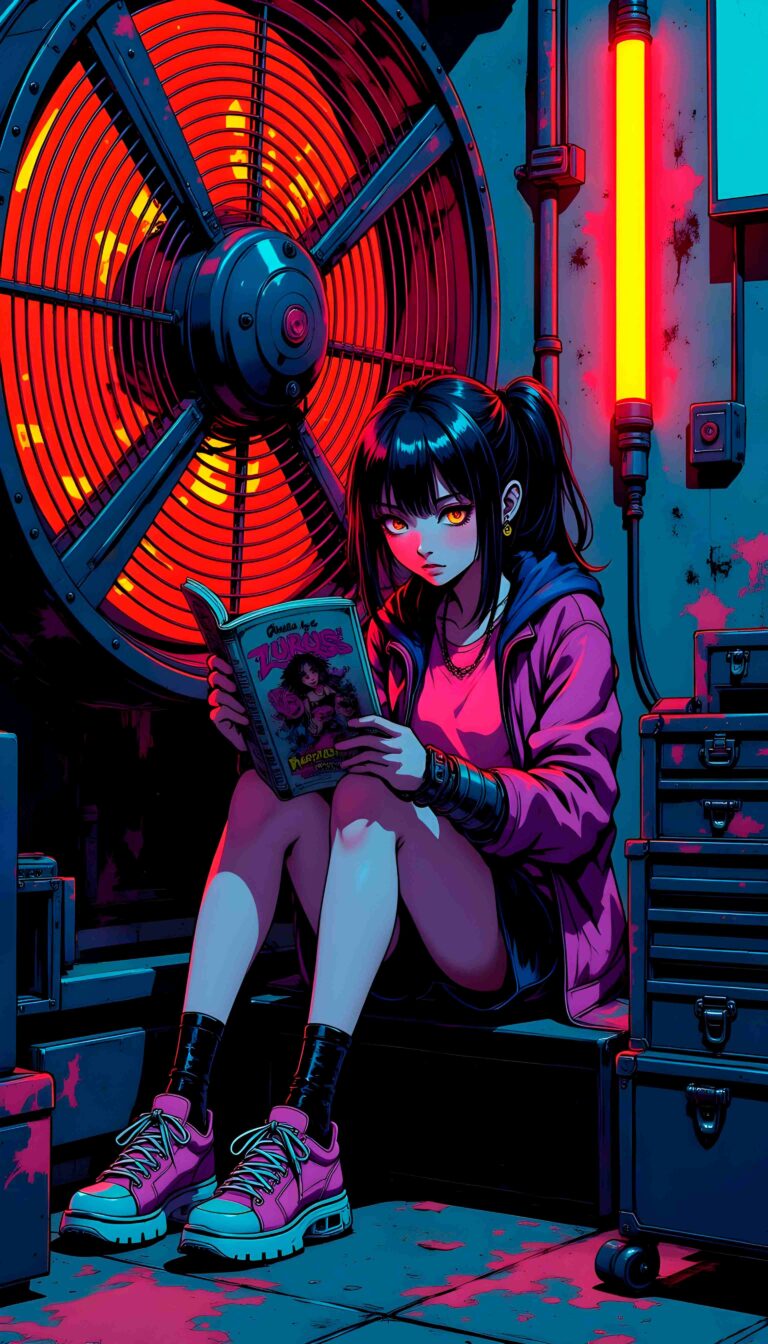
The digital landscape is a vast, often unregulated frontier, especially when it comes to niche content. In the shadowy corners of the internet, websites with names like Nhentai.het emerge, promising access to a world of doujinshi and fan-made comics. But what is the real story behind this specific portal? Is it a harmless repository for artistic expression, a blatant hub for piracy, or a digital minefield waiting to compromise your security? The name itself often causes confusion, sounding intentionally similar to other, more established platforms. This ambiguity is not an accident. This comprehensive guide pulls back the curtain on Nhentai.het, dissecting its content, its massive presence on platforms like YouTube, its undeniable legal and ethical pitfalls, and the critical reasons why you should think twice before visiting. We are not here to judge your interests but to arm you with the facts, ensuring your online experience is both safe and respectful to the creators who bring your favorite stories to life.
What Exactly is Nhentai.het? Decoding the Name and the Niche
Let’s address the elephant in the room first. Nhentai.het is a website that primarily hosts and distributes doujinshi, which are self-published Japanese works, often manga, novels, or art collections. A significant portion of this content is pornographic or adult-oriented, frequently featuring characters from established anime, manga, and video game series. The term “hentai” itself is Japanese for “pervert” or “transformation” and is commonly used in the West to describe sexually explicit anime and manga. The confusion often arises from the “.het” domain, which is a country-code top-level domain for the Netherlands, but its use here seems more about creating a unique and memorable name rather than indicating a physical location. The platform operates by allowing users to upload, view, and sometimes tag and categorize this vast library of comics.

The operational model of Nhentai.het is fundamentally built on user submissions. This means the site itself does not create content; instead, it acts as an aggregator. This is a crucial distinction with significant implications, which we will explore later. The library is immense, spanning countless fandoms and genres, from vanilla romance to more extreme and niche fetishes. The site’s interface typically includes search functions, tag filtering, and a system for users to bookmark favorites, creating a seemingly robust ecosystem for consumers of this specific type of media. However, this facade of a community-driven library masks a much more complex and problematic reality involving copyright law, creator rights, and cybersecurity.
Rampant Presence on YouTube and Social Media: How “Nhentai.het” Gains Traction
You might be surprised to learn that Nhentai.het and similar sites have a significant, though often covert, presence on mainstream platforms like YouTube. A simple search reveals a plethora of videos with titles like “How to Access Nhentai.het,” “Nhentai.het Code Explained,” or “Top 10 Doujins on Nhentai.het.” These videos serve as a major funnel, directing curious users from the safe, moderated environment of YouTube to the far less regulated website. Content creators on YouTube often use these topics for clickbait, leveraging the inherent curiosity and massive fanbase surrounding anime culture to generate views. They rarely, if ever, discuss the legal and security ramifications in depth.
This cross-platform promotion creates a feedback loop. A TikTok or Twitter user might share a panel from a popular doujinshi found on Nhentai.het, sparking interest. Viewers then flock to YouTube to find out more, where they are given direct or indirect instructions on how to access the source. This cycle normalizes the use of these sites and embeds them deeply within fan communities. The discussions in the comments sections of these videos often serve as unofficial support forums, where users share direct links, bypass methods for regional blocks, and recommend specific codes for comics. This ecosystem effectively markets Nhentai.het without the site itself spending a dime on advertising, all while operating in a gray area of platform terms of service.
Uncomfortable Legal and Ethical Quagmire of Piracy
This is the core of the issue with Nhentai.het. The vast majority of the content hosted on the site is uploaded without the permission of the original artists or the copyright holders. Doujinshi culture in Japan has a complex relationship with copyright law, often operating under a policy of tacit tolerance from companies like Kadokawa or Square Enix, as long as it remains non-commercial and within the spirit of fandom. However, sites like Nhentai.het commercialize this content through ad revenue. Every banner ad, pop-up, and video ad you see on that site generates revenue for its operators, directly profiting from the unauthorized distribution of someone else’s creative work.

The ethical implications are profound. When you read a doujinshi on Nhentai.het, you are almost certainly doing so without supporting the artist. Many doujinshi artists, or “circles,” sell their books at events like Comiket for a few hundred or thousand yen. For some, this is a significant source of income. By scanning, uploading, and viewing these works on pirate sites, the financial chain is broken. The artist receives no compensation for their labor, time, and creativity. While some argue that these sites provide exposure, exposure does not pay bills. The legal standing of Nhentai.het is therefore extremely precarious, existing in a clear state of copyright infringement, which makes it a constant target for takedown requests and legal action, though its decentralized nature makes it a resilient target.
Glaring Security Risks You Cannot Afford to Ignore
Beyond the ethical concerns, visiting a site like Nhentai.het poses a direct threat to your personal cybersecurity. These sites are infamous for their aggressive and malicious advertising networks. We are not talking about simple banner ads here. The risks are real and varied:
- Malware and Viruses: Clicking on the wrong pop-up can trigger a drive-by download, silently installing malware, ransomware, or viruses onto your device.
- Phishing Scams: Many ads are designed to look like system alerts, warning you about a fictional virus on your computer and tricking you into downloading fake antivirus software that is actually spyware.
- Data Tracking: These sites are laden with trackers that monitor your browsing habits, collecting data that can be sold to third parties without your consent.
More Read About: Adsy.pw/hb5: A Deep Dive into Its Features and Benefits
The table below provides a quick comparison of the potential dangers versus the perceived benefits of using such a site.
| Aspect | The Allure (Perceived Benefit) | The Harsh Reality (The Risk) |
| Content Access | Free, unlimited access to a vast library of comics. | Content is stolen; artists are not compensated. |
| Convenience | All content in one place, easy to search and browse. | High risk of malware, phishing, and data theft. |
| Cost | Completely free for the user. | “Paid for” through ad revenue that supports pirates and risks your device’s security. |
| Community | User comments and tagging system. | Unmoderated, potentially toxic environment with no real connection to artists. |
Exploring Legitimate and Safer Alternatives for Fans
The good news is that you do not need to rely on shady sites like Nhentai.het to enjoy doujinshi and support artists. The digital landscape has evolved, and several legitimate platforms have emerged that allow creators to sell their work directly to fans, often worldwide.
- Pixiv Fanbox and Fantia: These are popular subscription-based platforms where artists can offer exclusive content, including doujinshi, illustrations, and process work, to their paying subscribers. This is one of the best ways to directly support your favorite creators.
- DLsite: A massive digital storefront specializing in doujinshi games, manga, and voice work. It is a legitimate marketplace where circles sell their work, and you can purchase items individually.
- Official Digital Manga Stores: Platforms like Amazon Kindle, BookWalker, and eBookJapan have extensive libraries of official manga and a growing selection of doujinshi that are legally licensed for sale.
Supporting artists on these platforms ensures they are paid for their work, encouraging them to create more of the content you love. It is a sustainable and ethical model that respects creativity and intellectual property. The experience is also far superior, with higher-quality images, no malicious ads, and the peace of mind that comes with using a secure, legitimate service.
Conclusion: Making an Informed and Responsible Choice
The allure of free, immediate, and vast content is powerful, but the true cost of using a site like Nhentai.het is far greater than it appears. It’s a cost measured in the lost livelihoods of artists, the normalization of digital piracy, and the very real threat to your own cybersecurity. While the site may serve as a temporary solution for a content vacuum, the long-term consequences are unsustainable and harmful. The internet offers a choice: you can be part of a cycle that devalues art and compromises safety, or you can choose to support the vibrant community of creators through legitimate and growing channels. The next time you’re looking for that specific doujinshi, remember that the best way to ensure more of it is made is to ensure the artist can afford to make it. Seek out the official sources, support the creators directly, and protect your digital well-being in the process.
Frequently Asked Questions (FAQ)
Is using nhentai.het illegal for me as a viewer?
In most countries, simply viewing copyrighted content on a site like Nhentai.het is not typically prosecuted as a criminal act for the end-user. However, you are accessing material that is almost certainly there illegally, which makes your activity a form of copyright infringement. The greater risk is not legal action against you, but the high probability of encountering malware and phishing scams that can harm your device and compromise your personal data.
How does nhentai.het actually get its content?
The content on Nhentai.het comes almost exclusively from user submissions. This process involves individuals, often using scanners, digitizing physical doujinshi books. These digital files are then uploaded directly to the site by these users. The site’s administrators do not create the content; their role is to maintain the platform and its advertising network, which generates revenue from the traffic this pirated content attracts.
Why do artists tolerate their work being on nhentai.het?
This is a common misconception. Artists do not “tolerate” it; they overwhelmingly oppose it. Most artists are individuals or small circles without the international legal resources to issue takedown notices for every pirate site that hosts their work. They often spend a significant amount of time issuing DMCA requests, but as soon as one link is removed, another pops up elsewhere. It’s a constant, draining battle for them.
What is the difference between nhentai.het and official sites?
The difference is fundamental. Official sites and stores like DLsite or Pixiv Booth have direct agreements with artists. They act as legitimate storefronts, processing sales and ensuring a portion of the revenue goes directly to the creator. Nhentai.het has no such agreements; it is a parasitic platform that profits from ads displayed next to stolen content, giving nothing back to the people who made that content possible.
Are there any safe ways to read doujinshi for free?
While “free” is rarely sustainable for artists, some creators do offer free samples or older works on their social media or Pixiv accounts to attract new supporters. The safest and most ethical approach to accessing their full catalog is to use the legitimate platforms mentioned. Think of it as an investment in the artist’s future, ensuring they can continue to produce the stories and art you enjoy.







1 thought on “Unvarnished Truth About Nhentai.het: Shocking Deep Dive into a Controversial Hub [2026]”